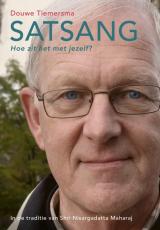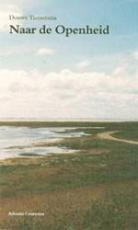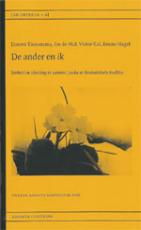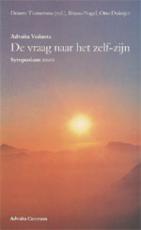Advaita Post #12-06 - When you enjoy the spring...
Volume 12 No 6 (April 22, 2011)
--- When you relaxingly sink into your own being, worry for yourself and your existence disappears and there is no birth and death and no duality. ---

When you enjoy the spring: agree to enjoy till you burst.
*
I am joy,
infinite bliss
without conditions.
This is my being-awareness, the enjoyment
without distance, without borders, but also
the recognition that I am free
even from this universal ananda.
*
Dying and mourning - the non-dualistic perspective (Part 2)
A reworking of the talk given to the Zuylen Funeral Home, Breda, January 18, 2009
Thus, the human situation is tragic. The conflict always reappears between the sense and desire to be endless and the experience of limitation, decline and death. This conflict expresses itself daily in all kinds of forms. It is a dramatic situation with much suffering.
For a solution to the conflict we can refer to people who are close to death. In that situation a reflection upon the nature of one's own existence is almost inevitable, because all kinds of axioms fall away. The falling away of all kinds of aspects of one's existence means a change in the experience of that existence. With the leave taking everything that is connected to life becomes more relative. What remains? Then you are positioned on a very deep level where it's about the most essential things: yourself as an individual and finite human being as such. We have already seen the dualistic structure of life from an I-center focused on the world, with desire and fear, with the fundamental conflict. This structure will fall away at death. If it goes well, there is a surrender, a total release of the old life, and a consciousness of what remains. Then it becomes clear that you are not bound by the presumption of being a finite person and therefore you are not limited by the fundamental conflict.
This is also something which occurs sooner or later in a good spiritual development without the death of the physical body. There is a return to your core and a relaxation. The more you return, the greater the relaxation, because tension has to do with your relationship to the external world in which you want and desire all sorts of things. As you let the focus with its I-tension return to the source of yourself, allow the relaxation go so deep into your core that you come free. The last tension of the ego-person disappears. So, in your own experience your own existence comes completely open. The forces that initially were knotted in your core come free. It's strange: you go within and you become more open. People who follow a meditative spirituality are often criticized: those are people who go within and no longer have anything to do with life ... No, not at all: because the more you go within and let go, the more open you are for everything and everyone. Initially the 'I' with its I-worry is the most important. The more you go within, the more relaxation occurs, the more you release your I-worry and you come more open. The space becomes larger, borders disappear. The emotional aspect of this process is love. In that movement you completely accept the other in their own self-being, while simultaneously you discover that that self-being is not different from your own. That loving opening means an explosion of energy. Why? Because the energy is no longer held tightly within an 'I'-center. Everyone thinks it's great when that energy is released. Everyone recognizes it, because that knowing was always already there: it's about that. In ordinary life the I-limitation dominates, but everyone knows That. If, in a spiritual development, That becomes clear, there is also joy. The joy is also there with dying, to the extent that you come free in non-duality.
The undivided nature of being-awareness and love is actually a very natural state. It is the relaxation of self-being. When you deeply sink into yourself with relaxation, the worry about yourself disappears. You can experience the same depth in another. In that sphere of recognition there is no birth and no death and no duality. The sting of death has disappeared. The fear of death is gone. Staying stuck in the structure of a person who considers themselves limited is no longer there. The fundamental conflict and its associated suffering are gone. This infinite non-duality can be directly recognized. With death, there is a great opportunity to recognize this directly.
Er is geen tweeheid
als je ontspannen bent
in zelf-bewustzijn
is dat duidelijk.
Boeken
Douwe schreef en redigeerde gedurende zijn leven boeken. Via onze uitgeverij zijn deze nog verkrijgbaar.



